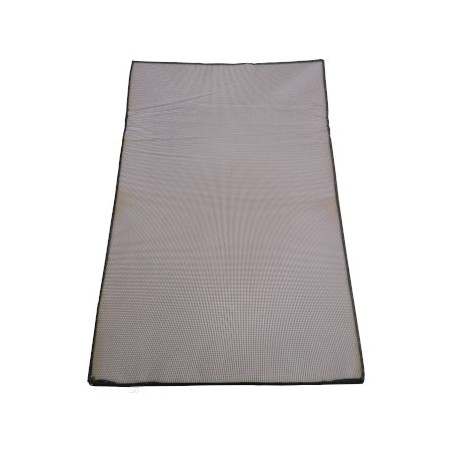With the aim of strengthening the actions implemented to prevent the entry of African swine fever (ASF) into Mexico, the Ministry of Agriculture and Rural Development (SADER) has implemented several measures such as restricting the imports of hazardous products, the continuous training of technicians, and the constant strengthening of the commercial and tourist animal health inspection tasks.
At the same time, it has established agreements with the production sector to increase the biosecurity levels in all the country's production units.

The National Service for Agrifood Health, Safety and Quality (SENASICA) does not allow the commercial or tourist import of pork and pork products from the 20 countries that have reported recent outbreaks of the disease: Belgium, Bulgaria, Burundi, Chad, China, Ivory Coast, Estonia, Hungary, Kenya, Latvia, Lithuania, Mali, Moldova, Poland, the Czech Republic, Romania, Russia, South Africa, Ukraine and Zambia.
Executives of this body have held meetings with pig producers so they strengthen the biosecurity measures in the production units, they implement the Good Production Practices and they notify any anomaly on their farms immediately.
As an additional measure, the SENASICA, in coordination with the Mexican Association of Swine Veterinarians (AMVEC) is working towards the integration of a new Biosecurity Handbook for Pig Farms (that will be included in the Good Animal Production Practices) with the aim of strengthening the preventive measures in the production units.
In coordination with producers' associations, such as the National Pig Producers' Organisation (OPORPA), visits have been carried out to ports and airports to supervise the activity of the SENASICA officers in the points of entry to Mexico.
Between November 2018 and March 2019, five “Drills on the Emergency Systems and Plans for Red Diseases of Pigs (AUTOSIM II)” have been carried out and the biosecurity measures in Mexico have been strengthened.
On the other hand, the Directorate General of Plant and Animal Health Inspection of the SENASICA is carrying out actions in all the points of entry to Mexico aimed at preventing the introduction of ASF into Mexico.
The SADER's body strengthened the health activities and measures that it regularly implements at the Agriculture and Livestock Health Inspection Offices (OISA) to prevent the entry of pests or diseases that could be present in the agriculture, livestock, aquaculture and fisheries goods imported through the commercial or tourist route.
In the face of the international alert due to the spreading of this disease that affects pigs and that is not present in Mexico, the SENASICA implemented other measures to minimise the risk of its entry into Mexico, specially through flights from the affected countries arriving to Tijuana and Mexico City mainly.
Due to this, the use of disinfection mats in international flights and double shift inspections (with the help of dogs trained for the detection of hazardous agriculture and food products) are compulsory to avoid the entry of the disease into Mexico.
Also, the officers seal the kitchens and incinerate the leftovers in ships and planes to eliminate any possibility of the disease entering Mexico.
Wednesday, April 24th, 2019/ SADER/ Mexico.
https://www.gob.mx/sader






